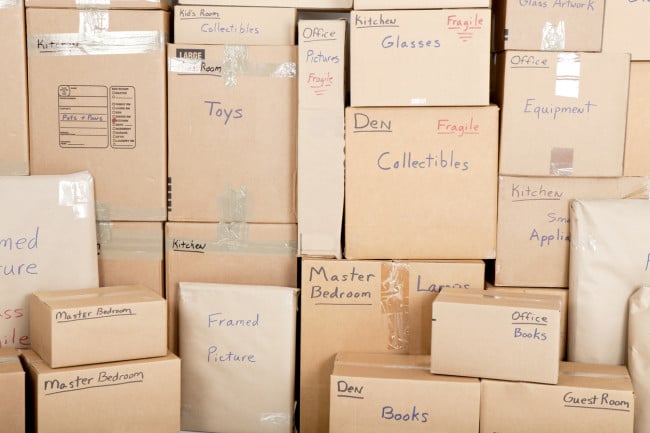What is moving insurance, and do I really need it?

Moving insurance protects your possessions during transit.
iStock
If you’ve ever had a theft, fire, or flood in your New York City apartment, you know how important an insurance policy is for protecting your possessions. But what about when you’re moving to your new apartment? How do you protect your things then?
For that you need moving insurance. Don't assume that just because you have a renter's or home owner's insurance policy that you're in the clear. Your move is typically not covered by your general insurance policy, says Jeff Schneider, president of Gotham Brokerage, an apartment insurance broker in NYC (and Brick Underground sponsor).
When you call your insurance provider to transfer your coverage to the new address (or cancel if you’re moving out of state), it's a good idea to ask what, if anything, your policy covers in regard to your move. Some may cover theft, while most include vehicle damage or fire, such as if your storage warehouse burns down, a rare occurrence.
But you would be wise to expect the unexpected when it comes to moving. “Items may break or get lost, even if you move with the best of the best,” says Ross Sapir, CEO and founder of NYC-based Roadway Moving. “Just like 2 percent of all suitcases get lost while using the best airlines, items may get lost or damaged with movers.”
Read on to learn about ways you can protect your possessions while they're in transit.
How to get moving insurance
Keep in mind that moving insurance can be purchased only through an insurance company. (Movers can't sell insurance because they are not licensed to sell insurance.)
Two well-known moving insurance providers are Baker International and MovingInsurance.com. Rates vary depending on the value of your shipment, level of deductible you choose, and moving company and destination, but rates start at about $200 and go up from there, according to a quote calculation Brick did for a move in the city valued at $20,000 on both companies' website. (We used Williamsburg as the origin and Astoria as destination.)
Moving insurance coverage continues for up to 90 days if your things need to be stored in your movers’ warehouse, and you can buy an extension if they’ll be there longer than that. But if you plan to put your things into self-storage, they will not be covered.
What is valuation coverage?
Movers do offer something called valuation coverage, which is essentially how much liability they’ll accept should something happen to your stuff while it’s in their possession during the move. The Federal Motor Carrier Safety Administration requires all interstate movers offer at least two levels of such coverage: full value protection and released value protection, and both are based on the weight of your shipment.
FVP is more comprehensive, and so it will increase the cost of your move. Under this coverage plan, your moving company can choose to either repair or replace any damaged or missing items, or compensate you to repair or replace the items at a fair-market value, says Sharone Ben-Harosh, founder and CEO of NYC-based FlatRate Moving.
Cost for FVP varies depending on the value of items being moved. For out-of-state moves, “the cost is $13 per $1,000 of total shipment value,” says Ben-Harosh. For in-state moves, depending on the state, “the cost is $5 per $1,000 of total shipment value,” he says, adding that both are subjected to a $500 deductible.
RVP is minimum coverage that has no extra charge. Under this option, your mover is responsible for no more than 60 cents per pound, per item that is damaged or missing, according to FMCSA. So if a 10-pound item valued at $1,000 is broken during transit, your mover covers no more than $6 ($0.60 x 10).
If you have any high-value items—which FMCSA defines as things valued at $100 or more per pound (think jewelry, art, china, antiques, and computer equipment)—you must declare them to your movers, which allows them “to correctly wrap and protect these items for safe transport,” Ben-Harosh says.
Since moving valuation can be limited, moving insurance from a third-party insurance company gives you more of a safety net, especially if you have a lot of high-value items or opt for RVP coverage. Moving insurance will cover things moving valuation won’t, namely loss or damage from fire, floods, storms, theft, etc.
Is my stuff covered if I pack boxes myself?
Anything you pack yourself will not be covered by moving insurance, unless a box is damaged and noted on your movers’ delivery documents, says Baker International.
If a box you packed yourself goes missing, you may be required to provide proof of ownership, and compensation would be no more than $250, says MovingInsurance.com.
You Might Also Like



























